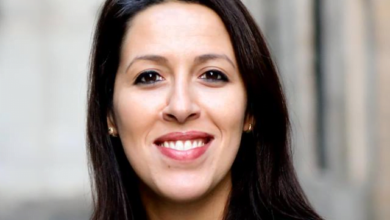Back to school 2022: E-learning to meet the challenge of Education for All
Distance learning has prevailed across the world during the COVID19 pandemic. The health and social crisis has taught us several lessons: digital technology can assist and even replace traditional educational models. And in this respect, Africa is far from being the last to rethink its « School of Tomorrow ». Better yet, it is a source of inspiration…
By Mérième Alaoui
Read more : Back to school 2022: E-learning to meet the challenge of Education for AllSchoolchildren, high school students and other students are returning to the classroom. But for the start of the 2022 school year, it is not surprising to see that digital technology that was already present before the pandemic has been reinforced everywhere. Algeria, far from being a pioneer in this field, has learned the lessons of the COVID-19 pandemic and mobilized significant resources in this new school year to provide its students with appropriate technological tools. Innovations presented to the general public at the first digital education fair in Algiers, EducTeck (Read First EducTeck fair in Algiers -“The connected generation is an opportunity to expand online services”).
Public officials, in Algiers as elsewhere on the continent, have had no alternative but to follow a trend already well initiated by private operators, including young startups. The consensus has been clearly reached: no development without investing in education. However, with a population expected to double by 2040, the continent, which is already struggling to provide quality education for all, will have to face major challenges: lack of infrastructure, teacher training, adaptation of educational content to the new needs of the economy … New technologies do provide solutions to all these challenges. Knowing that 80% of today’s jobs will disappear in the coming years, especially with the emergence of artificial intelligence, it is urgent to seize the opportunities offered by these technological solutions and adapt them to the realities and needs of the continent. This requires a complete rethinking of the educational models in force on the continent, as elsewhere.
It is on this point that e-learning offers a major opportunity to the continent. That of meeting the challenge of Education for All. Alongside pioneers such as BRCK, which started in Kenya before extending its model elsewhere in the region, with an innovative internet solution designed to facilitate access to educational content, even in the most remote regions, others have appeared on a booming market. In Africa and around the world. With a global turnover estimated at $254.8 billion in 2021, and which is expected to more than double by 2027 (to $605.4 billion), according to the specialized research firm Arizton, edtech is now a market eight times larger than the software sector. The Swiss organization Seedstars – which invests in young companies in emerging countries – estimates that 9% of the applications downloaded from the App Store today concern educational content. It’s not surprising, then, that Africa, boosted by the increased need for digitalization due to the COVID pandemic (school closures), is also seeing a rise in e-learning offerings.
“The crisis has been a real challenge for Africa but it has not, by and large, been the catastrophe that was predicted. Africans have used the technologies available to them to carry on teaching and learning. People have learnt from this crisis and they know how important technology now is to education,” says Rebecca Stromeyer, Director of eLearning Africa, whose last conference was held in Kigali in May 2022 (Read eLearning Africa: the future of education rethought in Kigali).
This is enough to arouse interest in a market that is considered particularly attractive. For example, the Irish-based platform Alison, which offers free online educational content, is targeting and adapting its model to Africa, particularly through offers in local languages. As a result, the platform last June recorded an 87% increase in registrations on the African continent.
Local players are not absent from this market; on the contrary. The Tunisian startup GoMyCode, which recently closed an $8 million Series A round of financing led by AfricInvest, present in eight countries in the Middle East and Africa region, has seen more than 1,000 new students registering for one of the 30 courses offered every month. A record for an African startup operating in EdTech. Again, with a format particularly adapted to Africa.
Similarly, the Abidjan-based Etudesk supports a dozen schools in Côte d’Ivoire and Senegal in adapting and putting their educational content online in the best possible time and conditions. In recent years, more than 400 organizations (SMEs, startups, corporates, government, international organizations) have used the platform to train more than 50,000 people in 17 countries.
Electricity and Internet access continues to widen inequalities
One major challenge remains: Internet access is still insufficient, just as much as electricity access. In Africa, UNICEF considers that one child out of two has not been able to access distance learning during the confinement. It is not only the difficulty of accessing the internet, but also simply the government programs on television or radio. For lack of electricity.






